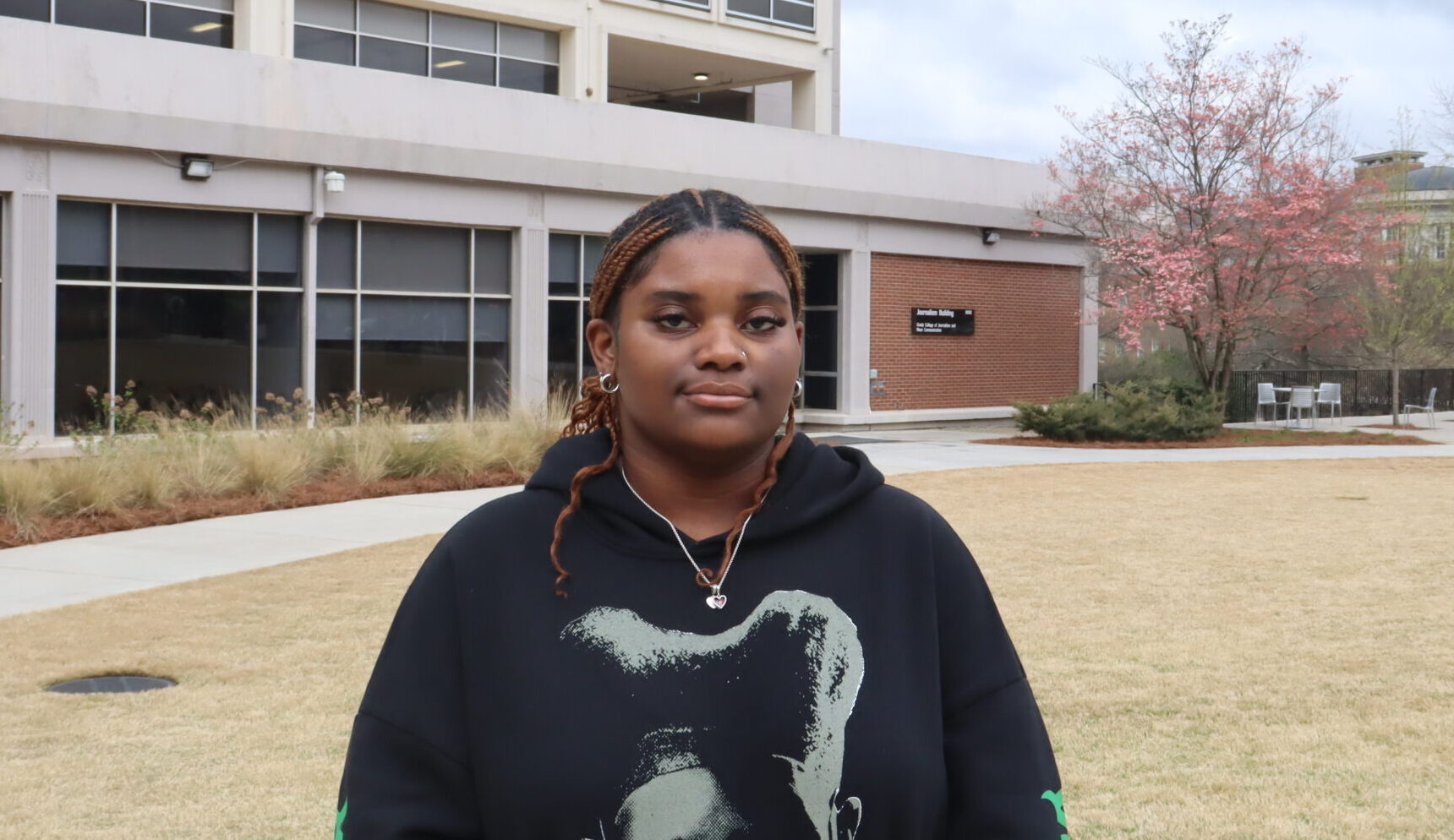Programs at the University of Georgia could be at risk after the Trump administration pledged to eliminate programs related to diversity, equity and inclusion.
University-wide initiatives, offices, programs, affinity groups, clubs and student organizations all play a role in “increas[ing] enrollment of underrepresented students at undergraduate and graduate levels,” according to the UGA Office of Inclusive Excellence.
These programs are often grouped under the umbrella of “diversity, equity and inclusion” or DEI.
Fitting a Mold

Ellie Sanchez did not want to stand out much in the Terry College of Business and hid parts of her personality to “fit the mold.”
A 2023 graduate of Terry College of Business and the College of Family and Consumer Sciences, she recalls how her identity as a Hispanic female impacted her experience at the University of Georgia.
“My identity within Terry was much more secluded,” Sanchez said. “I presented myself in a very different way than I would outside of my Terry classes and Terry organizations.”
Why It’s Newsworthy: The Trump administration warned that universities could lose federal funding if they do not comply with the administration’s push to eliminate DEI initiatives.Sanchez was the only Hispanic person in her Institute for Leadership Advancement (ILA) courses, she says. That pressure made Sanchez present herself “more poised and career-driven” and “not very creative” when taking those classes.
DEI at UGA
According to the UGA Office for Institutional Research, enrollment of Hispanic students quadrupled since 2003, and the number of Asian or Pacific Islander students attending has tripled in the same time frame.

But challenges persist.
The U.S. Supreme Court issued a ruling in 2023, stating that colleges’ use of race as a factor in admissions is unconstitutional. Some universities are already seeing impacts of the court’s ruling. Black student enrollment at Harvard Law School dropped by half. And just 3% of Amherst College’s first-year class in 2024 were Black compared to 11% the prior year.
A Deeper Dive: Race and ethnicity have not been factors in UGA’s admissions process since 2000 when three white women sued the university after being denied admission, alleging discrimination. The University System of Georgia ended the policy at all its institutions that same year.
UGA remains a predominantly white institution (PWI), and Black or African-American students make up 8% of the student body despite being one-third of the state’s population.
The Push to Ban DEI
President Donald Trump signed an executive order on Jan. 20, 2025, his first day in office, which terminated “all discriminatory programs, including illegal DEI and ‘diversity, equity, inclusion and accessibility’ programs within the federal government.”
Universities are already making changes in the wake of these executive orders. The University of Colorado has removed its website dedicated to diversity and inclusion efforts. Instead, they introduced a new Office of Collaboration page.
Private companies are reacting, too. Google removed events such as Black History Month and Pride Month from its Google Calendar, while Target distributed a memo to its staff explaining the end of its DEI goals.
‘Good’ Representation
Kayla West, a third-year Entertainment and Media Studies student at UGA, hopes to run media and content strategy for an entertainment company.
“As a Black woman, it is just important to have representation — like good representation — on the screen and have good stories being told,” West said.
West is an ambassador for Grady College and the enrollment manager for Women in Media. She discovered an opportunity for professional development and building community in UGA’s chapter of the National Council of Negro Women (NCNW), where she is now the event coordinator.
Her experience, similar to Sanchez, differs between the Grady College of Journalism and Mass Communication and Terry College, where she is in her first semester as an ILA student.
Even if I’m in a Terry class and I’m the only Black girl, I know I can go to NCNW and feel like I belong,” she says. “Just feeling like you’re not alone and marginalized.”
Affinity groups and DEI policies extend past college graduation, though. West even asked employers at the Grady College Career Fair on Feb. 12 about their company’s DEI policies and company culture.
Her concerns are echoed among 77% of Gen Z, those born from 1997 to 2012, who want their company to be more diverse and inclusive, according to a study by McKinsey & Co.
DEI in the workplace translates to tangible benefits, too. The same study found that companies with strong DEI practices report higher employee satisfaction and productivity and improved financial performance.
A Threat to Pull Funding
The Department of Education warned schools on Feb. 14 that they risked losing federal funding if their policies were found to be violating civil rights law. Any school receiving federal funding must ensure its policies comply with the department’s push to remove race as a deciding factor in everything, including admissions, hiring, financial aid,and scholarships, according to the department’s guidance.
“Treating students differently on the basis of race to achieve nebulous goals such as diversity, racial balancing, social justice, or equity is illegal under controlling Supreme Court precedent,” Acting Assistant Secretary for Civil Rights Craig Trainor said in a letter to universities and K-12 schools.
Announcements like these and other changes worry West, uncertain if she will continue to receive her scholarship next year.
“I feel like it’s two steps forward, two steps back,” West said.
Christian Conte is a senior majoring in journalism and political science.









Show Comments (0)